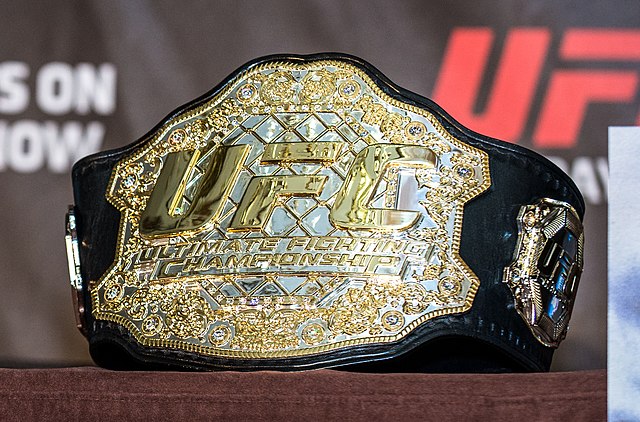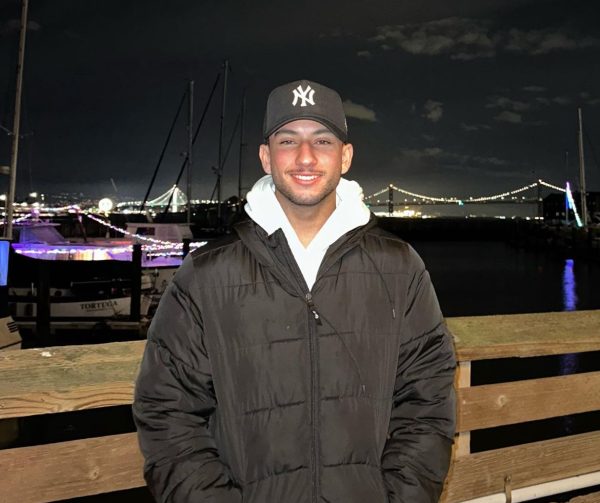According to the Cambridge Dictionary, “exorcism” describes the process through which prayers or magic are used to force an evil spirit to leave a person or place. And I don’t think any other word in the English language better explains what happened on the night of August 21 at Allianz Parque.
The match between Palmeiras and Botafogo that night was, as we would call it—historic. The game, which represented the second leg of the Libertadores Round of 16 knockout stage, was without a doubt not only one of the greatest games of the season but probably one of the most exciting showdowns in the competition’s history.
The first leg between the two, played on August 14, was already thrilling, but Wednesday’s conclusion to the round was even more intense and thoroughly more dramatic.
Botafogo came out on top with a 2-1 win in the first leg, which was played at their home stadium, the Nilton Santos.
As a result, they went into the second leg already ahead, with the possibility of still qualifying even with a tie in the away game. Due to this, a win for Palmeiras, if by just one goal, would have sent the game to penalties, and from there, the winner would qualify.

With a spot in the Libertadores quarterfinals up for grabs, both teams were sure to give it their all to attain qualification.
Palmeiras, led by multi-champion coach Abel Ferreira, understood their assignment. The team from São Paulo decided to go into the match with their full firepower, deploying a 4-2-3-1 formation.

SOCCER DIGITAL, Public domain, via Wikimedia Commons
The “Alviverdes” starting lineup featured former Brazilian international Weverton in goal, with star defender and Paraguayan legend Gustavo Gómez leading the defense alongside Victor Reis.
The defensive flanks were held by veteran right-back Marcos Rocha and the aggressive former São Paulo FC left-back Caio Paulista.
The midfield for Abel’s squad consisted of Zé Rafael and Colombian international Richard Ríos as CDMs, with the magical Raphael Veiga playing in front of them.
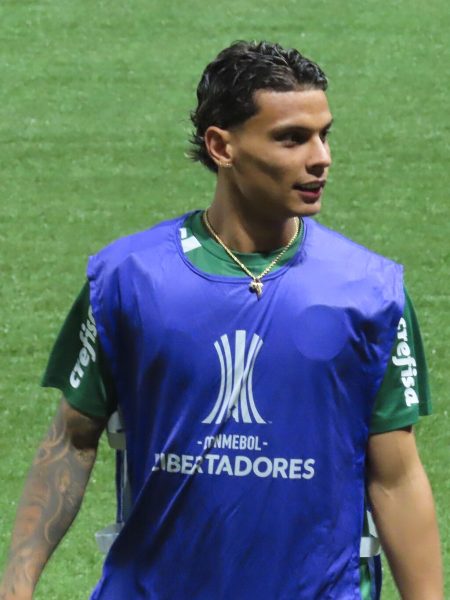
Flanking Veiga were wonderkid Estêvão and former West Ham starter Felipe Anderson.
Up top for Palmeiras was the very tall and very deadly López.
With this team, Abel Ferreira planned on making history, as qualification would not only mean yet another year of Palmeiras reaching the Libertadores quarterfinals but also reassurance that his curse over Botafogo hadn’t been lifted.
This is because it was Abel and Palmeiras who sent Botafogo spiraling into a historic collapse during the 2023 season.
The story goes that Botafogo was doing amazing, breaking records, and running through opponents—until Abel came along.
In a historic match, where Botafogo was leading 3-0 at halftime, Palmeiras somehow came back and won 4-3.
After that, Botafogo went on to lose many more games in similar fashion—where they would start strong but soon fall apart and fumble it all away.
This horrific pattern not only cost Botafogo the title but also left the entire fan base deeply traumatized by the painful end to the season.
The aftermath was a complete overhaul for Botafogo.
Many players left, new players were brought in, the old coach was sacked, and a new coach was hired. All this rebuilding was done with the Libertadores in mind, as there’s no better way to achieve redemption than by achieving eternal glory.
So, when the Libertadores draw on June 3, 2024, paired Botafogo with Palmeiras, everyone knew the match was going to catch fire.
As Palmeiras had qualified with better numbers in the group stage, they would host the second leg at home, while Botafogo would host the first leg.
And the first leg was an intense battle that Botafogo won, with the Roadrunner even present.
The match itself was a beautiful spectacle, with the fans creating an amazing Phoenix tifo to represent Botafogo’s rise from the ashes.
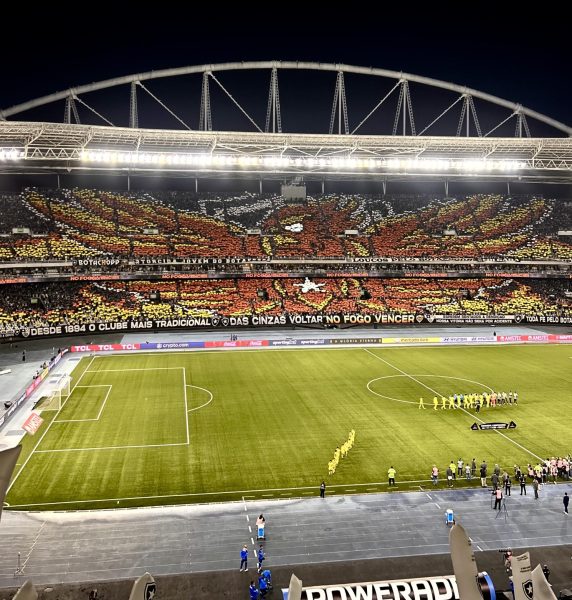
But as we learned on Wednesday, rising from the ashes doesn’t necessarily mean all evil has been defeated.
I say this because, as we will see, the match played on August 21 had an eerie resemblance to the game played on November 1.
For a quick second, it even seemed that maybe Botafogo weren’t fully done with their demons.
However, the journey to the final minutes of the game was a long one, and on this journey, Botafogo, led by Portuguese former Braga coach Artur Jorge, decided to deploy a 4-3-3 formation.
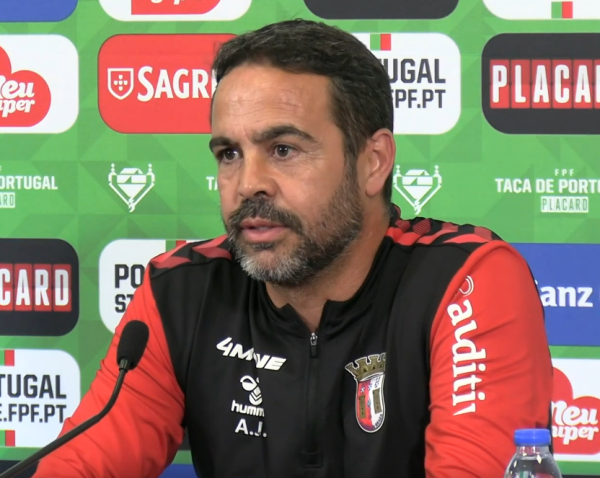
John Victor was under the posts, with Angolan Bastos and Argentinian Barboza in front of him.
To match the successful defensive backs of Palmeiras, Botafogo chose instead to go young, with two 21-year-olds on the flanks—Mateo Ponte on the right and Cuiabano on the left.
Leading the midfield for the “Glorious” was captain and 2023 “survivor” Marlon Freitas, with former Inter Miami player Gregore beside him.
Playing the number 10 role was Argentinian wonderkid and World Cup winner Thiago Almada.
The attacking flanks for Botafogo featured Venezuelan international Savarino on one side and the very skillful Luis Henrique on the other.
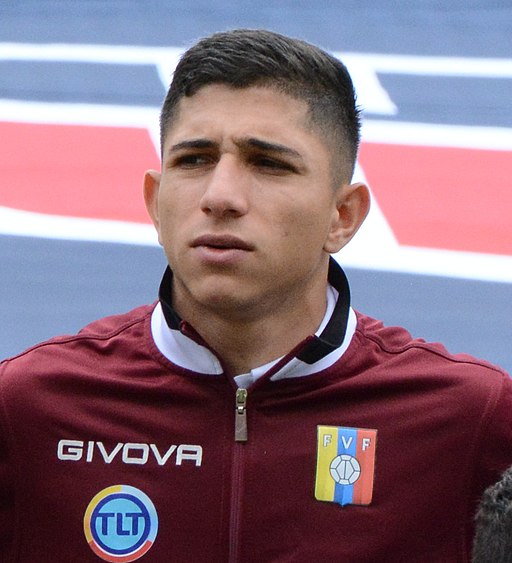
Playing the number 9 position for Botafogo was Igor Jesus, who, as time would tell, would play a vital role in the game.
This game was seen by many as the climax of an intense psychological thriller, where Botafogo would get a chance to once and for all defeat the malevolent force that had previously caused their downfall.

And as the game played out, it truly proved to be silver screen-worthy.
Like any good movie, it began with action right from the start.
Within the first five minutes, Savarino hit the woodwork with a powerful shot from outside the box.
This moment was like a warning sign, showing Palmeiras that Botafogo wasn’t afraid to play, and that even though it was at their home ground, it wasn’t going to be easy.
Although both teams tried to create chances after the initial scare, nothing too crazy happened in the first 45 minutes.
In a way, the first half can be seen as the calm before the storm—an introductory moment where both teams were feeling each other out and preparing for the drama that was to unfold in the second half.
From the start, the second half was much more eventful than the first.
Just 11 minutes into the final 45, Botafogo opened the scoring.
The deadlock breaker came from Igor Jesus, who scored from the center of the box with a phenomenal assist by Savarino.
The goal not only gave Botafogo the lead in the match but also extended their aggregate lead to 3-1, making it much more difficult for Palmeiras to react.
And if a comeback from 3-1 down is hard, one from 4-1 down would be almost impossible, and that is exactly the situation Palmeiras found themselves in when, 64 minutes into the game, super sub Matheus Martins assisted Savarino, who powerfully slotted the ball into the center of the goal.
With a 2-0 scoreline at Allianz and a 4-1 aggregate result, it truly seemed like the game was over.
Botafogo had done it—they had fully and thoroughly exorcised their demons and successfully secured their spot in the next round.
At least, that’s what it appeared had happened.
But as we learned in 2023, football, especially when it involves Botafogo vs. Palmeiras, is unpredictable.
And so, Palmeiras’ fightback began.
It was late in the game, in the 86th minute, that Palmeiras scored their first goal of the night.
After a perfect cross by Gabriel Menino, López rose above everyone and scored, making it 2-1, and 4-2 on aggregate.
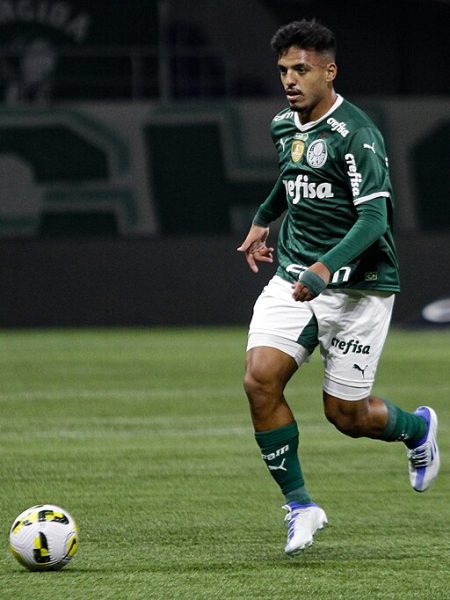
This goal, in more ways than one, reignited the fears of many Botafogo fans.
For an instant, it seemed that the ghosts of their past collapse weren’t so gone after all, and with that, the stage was set for another historic Palmeiras comeback against Botafogo.
Only four minutes later, at the 90th-minute mark, Palmeiras scored again.
This time, it was Rony, with an assist by Aníbal Moreno. Rony’s goal tied the game at 2-2 and brought the aggregate score to 4-3.
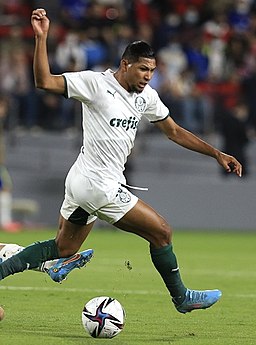
It was at this moment that the match reached fever pitch.
The players, the fans, and everyone watching could feel the tension—history was threatening to repeat itself.
The sense of déjà vu was overwhelming, and as unbelievable as it seemed, Palmeiras once again stood on the brink of overturning a 3-goal deficit against Botafogo.
It was then that the climax of the night occurred.
With the clock already past 90 minutes and nerves from both camps through the roof at Allianz, Gustavo Gómez did it—he found the back of the net, seemingly completing Palmeiras’ miraculous comeback.
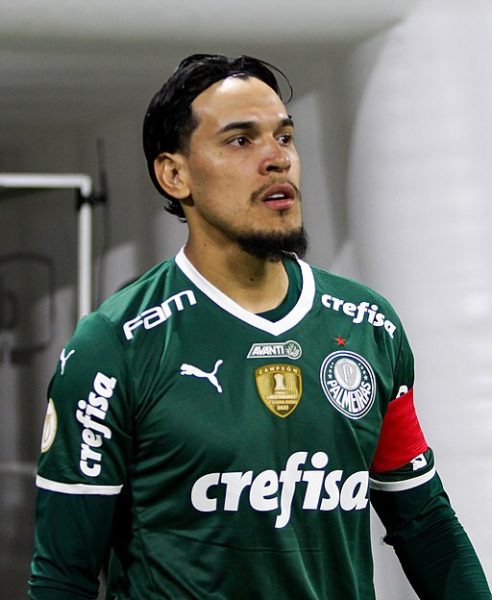
However, after a VAR review, the goal was disallowed due to Gómez using his hand to control the ball.
In a movie, this instant would be like the moment when the antagonist is stopped just inches away from victory—similar to when the Avengers battle Thanos, and he snaps his fingers only to realize he doesn’t have the glove anymore.
It seemed as if the gods of football decided that this time, Botafogo would not be denied, that this time they would be happy, and that this time they would win.
Yet the match wasn’t over.
Even though the disallowed goal hit Palmeiras like a bucket of cold water, Abel’s squad didn’t give up.
In one last attempt, 100 minutes into the game, Gabriel Menino hit the crossbar after a two-touch free kick from outside the box.
This last gasp for air by the “Alviverde” coincided perfectly with the end of the match.
After it hit the post, Botafogo cleared it, and the ref ended the game.
For Botafogo, this final moment, this final act, represented everything. It perfectly symbolized the narrow escape the team from Rio orchestrated in São Paulo, as Botafogo was literally just centimeters away from another catastrophic collapse.
For the “Glorious,” the final whistle meant much more than just the end of the match—it marked the conclusion of a long and torturous chapter in the team’s history.
In the context of the match itself, Botafogo showed extreme resilience. Despite immense pressure, they somehow managed to hold on, earning the much-sought-after qualification.
In the bigger picture, the match was the culmination of everything Botafogo has been through since their heartbreaking collapse in 2023.
For Botafogo, it was about much more than just advancing to the next round; it was about finally rewriting their narrative, proving they could stand up to their tormentors and that they aren’t the team that concedes last-minute game-losing goals anymore.
In many ways, the Round of 16 match between Palmeiras and Botafogo will be remembered for more than just the game itself—it will be remembered for the story it told. It was a story of redemption, of confronting and overcoming past failures, and most of all, it was about how we decide what we are—just because something has played out a certain way time and time again before, doesn’t mean it has to be that way again.

It’s hard to tell such a beautiful, poetic story and not mention the word destiny.
From the first whistle, which took place at the Nilton Santos, all the way to the final one at Allianz Parque, it felt as though the match was meant to end the way it did.
The buildup, the tension, the drama—all of it pointed toward Wednesday, August 21, being a night where history was written.
Even the disallowed goal, which easily could’ve shattered Botafogo’s dreams, felt like something from above ensuring that the Glorious would not suffer the same fate twice.
And in the end, the triumph was inevitable.
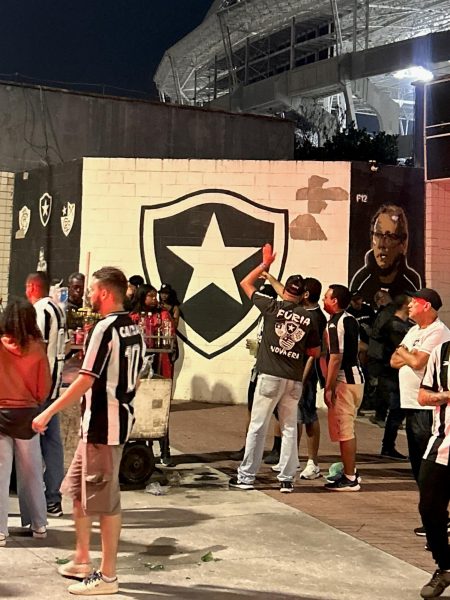
Moving on from Wednesday’s match, Botafogo will now turn their attention to the Brazilian league, where they will face Bahia on Sunday.
Palmeiras, on the other hand, will have a game sooner, with their next match against Cuiabá on Saturday.

In the context of the Libertadores, Botafogo will now prepare for their next game, which will be against São Paulo, who earned their spot after eliminating Uruguayan side Nacional with a 2-0 win at home on August 22.

As the Glorious look ahead, the road to eternal glory remains treacherous, with new challenges and difficult games on the horizon. Yet if anything is clear after what happened at the Allianz, it’s this: Botafogo are no longer defined by their past.
They’ve shown how much they’ve grown and that this time, the gods of football are on their side. And with this newfound strength, the Glorious are ready for whatever comes next.
Although the war may not be over, it’s through war that glory is earned, and that’s precisely what Botafogo are after.

for more articles like this, stay tuned to the Roadrunner—the English home of Brazilian soccer.



